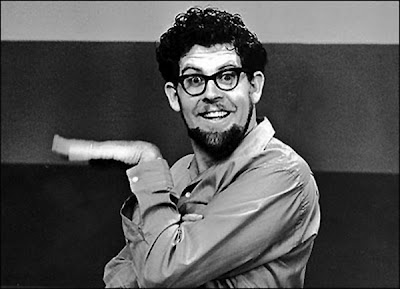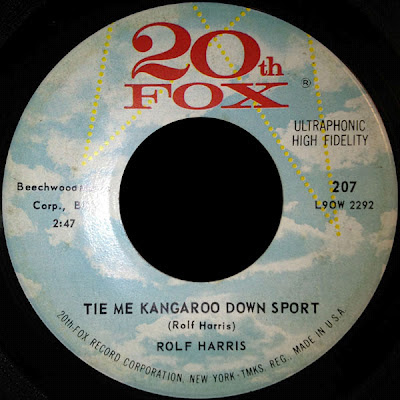Rolf Harris was born on 30 March 1930 in the Western Australia city of Perth, the son of Welsh immigrants, Crom and Agnes Harris. He relocated to England when he was 22 years old to work on a television show where viewers watched him draw the characters. He’s a fan of Aboriginal Australian music, incorporating instruments like the didgeridoo and wobble board into many of his songs.
This was a #1 hit in Australia that also went to #1 on the Billboard Adult Contemporary charts in America, but not in the same year. In fact, they weren’t even the same version. Rolf originally recorded this song in 1960. That’s the version that topped the Australian charts in May 1960 and went to #9 in England a couple months later. But that version was not heard much in America, even though it was released for distribution on 20th Fox. In 1962, Rolf got together with Beatles producer George Martin and did an updated version of the song. That’s the version that you remember hearing on the radio in America in the summer of 1963. It went to #3 on the Billboard Hot 100, #4 on Cashbox, #20 in Canada on 1050 CHUM in Toronto, and even managed to hit #19 on the R&B charts. This is also the version that finally broke through in Ireland, climbing to #9 there a couple months after becoming a smash novelty hit in North America. The 1962 recording, however, did not have an encore on the charts in Australia or England, and the song was completely overlooked in Germany and many other countries.
Here’s the original 1960 version of Tie Me Kangaroo Down Sport by Rolf Harris on 20th Fox 207:
And here’s the 1962 recording produced by George Martin that Americans remember hearing on the radio, released in the United States on Epic 9596:
Rolf Harris wrote this song in 1957, inspired by the calypso music of Harry Belafonte. In fact, the original working title of the song was Kangalypso. The song’s concept is very similar to a poem called The Dying Stockman written in 1885 by Howard Flowers and first recorded in 1905 by A. B. ‘Banjo’ Peterson. The song was first reworked at the EMI studios in Sydney in 1936 as a yodeling guitar tune by New Zealand-born Tex Morton as Wrap Me Up With My Stockwhip and Blanket on Regal Zonophone Records. These are the original lyrics of the ballad to read along with as you enjoy the Tex Morton recording:
A strapping young stockman lay dying
His saddle supporting his head
His two mates around him were crying
As he rose on his pillow and said
Chorus
Wrap me up with my stockwhip and blanket
And bury me deep down below
Where the dingoes and crows can’t molest me
In the shade where the coolibahs grow
Oh had I the flight of the bronzewing
Far over the plains would I fly
Straight to the land of my childhood
And there I would lay down and die
Then cut down a couple of saplings
Place one at my head and my toe
Carve on them cross stockwhip and saddle
To show there’s a stockman below
Hark there’s the wail of a dingo
Watchful and weird–I must go
For it tolls the death-knell of the stockman
From the gloom of the scrub down below
There’s tea in the battered old billy
Place the pannikins out in a row
And we’ll drink to the next merry meeting
In the place where all good fellows go
And oft in the shades of the twilight
When the soft winds are whispering low
And the darkening shadows are falling
Sometimes think of the stockman below
One part of Rolf’s original version of the song was considered racist by several critics, so Rolf removed the offensive words from later recordings and performances and apologized for them. That verse referenced the term ‘Abo’ which was an Australian slang term for Aboriginal Australians, that country’s version of Native Americans. It can be interpreted to mean that the dying stockman kept them as slaves, but it could also mean they worked for him voluntarily. Of course, you don’t let someone who works for you ‘go loose’ if they’re not held against their will.
Let me Abos go loose, Lew
Let me Abos go loose
They’re of no further use, Lew
So let me Abos go loose.
Here’s a bit of BeatleMania associated with this song:
After performing with the Beatles, Rolf Harris gave the wobble board to Ringo Starr who now owns the largest collection of them outside Australia.
I’ve got some more interesting tales about Rolf Harris which I’ll share with you in future posts. In the meantime, you can here all the hits of Rolf Harris (he had eight of them) on MusicMaster Oldies, along with a couple dozen other tracks.


